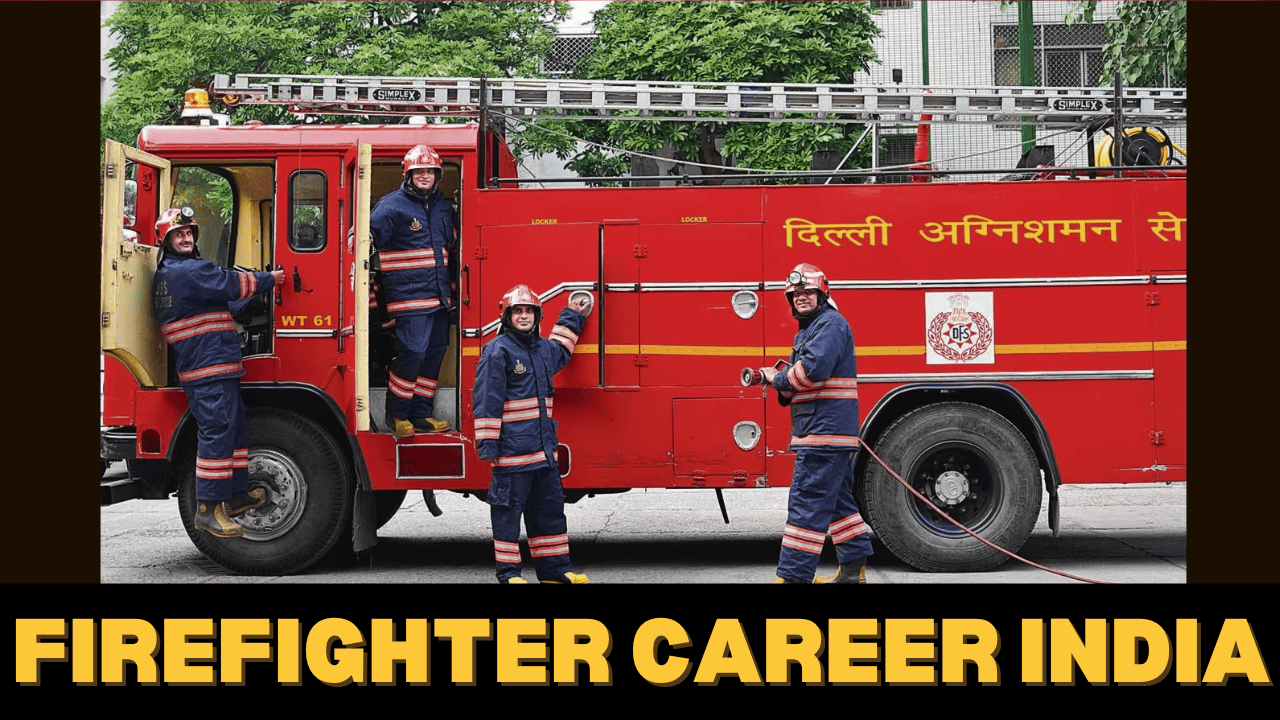Discover how to become a firefighter in India. Learn about qualifications, skills, training courses, work environments, and career opportunities in firefighting. Firefighting is a challenging and honorable profession focused on saving lives, rescuing animals, and protecting property during emergencies like fires, accidents, and natural disasters. Here’s a concise guide to pursuing a career in firefighting in India.
Key Responsibilities
Firefighters respond to emergencies, extinguish fires, and rescue victims in crises such as:
- Fires, floods, earthquakes, and accidents.
- Providing first aid and emergency medical care.
- Conducting fire prevention training and safety drills.
- Maintaining and operating firefighting equipment and vehicles.
Educational Qualifications
- Post-10th: Certificates like Firefighter Training, Disaster Management, or EMT certifications.
- Post-12th: Diplomas (e.g., Fire and Safety Management) or Bachelor’s degrees in fire safety or engineering.
- Advanced Training: Postgraduate diplomas in safety management or industrial safety.
Key Skills
- Physical Fitness: Strength, stamina, and agility for carrying equipment and performing rescues.
- Courage and Decisiveness: Making quick decisions in high-risk situations.
- First Aid: Essential for assisting victims before paramedics arrive.
- Teamwork and Communication: Collaborating with colleagues and effectively coordinating during emergencies.
Work Environment
Firefighters often work 24-hour shifts in high-risk environments, including government agencies, private companies, and industrial plants. Physical risks such as exposure to flames, smoke, and structural collapses are inherent to the job.
Steps to Become a Firefighter
- Education: Complete at least 10th or 12th grade. Higher qualifications improve job prospects.
- Training: Pursue certificates, diplomas, or degrees in fire science, safety management, or disaster management.
- Physical Tests: Meet the required height, weight, and fitness standards, including agility assessments.
- Job Applications: Apply to government fire departments or private companies.
- On-the-Job Training: Learn practical firefighting skills and job-specific requirements through structured programs.
Salary and Benefits
- Average salary: ₹20,405/month (varies by location, experience, and employer).
- Additional benefits: Housing allowances, medical aid, pensions, and paid leave.
Career Opportunities
Firefighters can advance to roles like Fire Officer, Safety Supervisor, or Safety Consultant. Private industries such as petroleum, construction, and aviation also offer specialized roles like Fire Safety Engineer or Fire Protection Technician.
Conclusion
A career in firefighting is physically demanding but immensely rewarding. With proper training, skills, and dedication, you can contribute to safeguarding lives and making a significant impact in your community.






